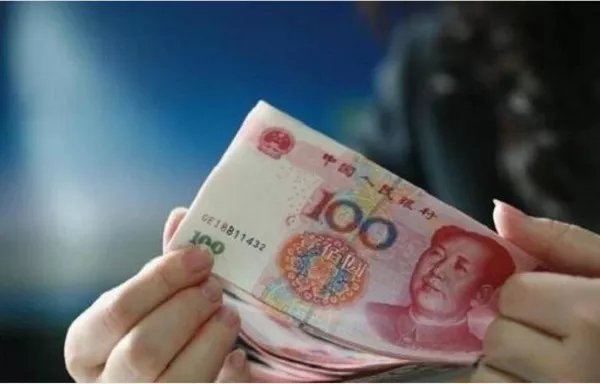China’s yuan (CNY) and Indonesia’s rupiah (IDR) are two currencies with significant economic impact in Asia. Understanding their exchange rate, factors influencing it, and the implications for individuals and businesses is crucial. In this comprehensive article, we will delve into the current exchange rate between 50 yuan and IDR, explore the calculation process, analyze the factors influencing exchange rates, forecast future trends, provide financial advice, discuss legal and tax implications, examine relevant economic indicators, assess global market impact, and conclude with actionable insights.
Current Exchange Rate
As of the latest data, the exchange rate between the Chinese yuan (CNY) and the Indonesian rupiah (IDR) fluctuates due to market dynamics. To determine the value of 50 yuan in IDR, we refer to the current exchange rate:
1 Chinese Yuan (CNY) ≈ 2238 Indonesian Rupiah (IDR)
Therefore, 50 Chinese Yuan (CNY) ≈ 111894 Indonesian Rupiah (IDR)
This exchange rate serves as a baseline for understanding the monetary value when converting 50 yuan to IDR. However, exchange rates can vary slightly depending on the financial institution, market conditions, and transaction method used.
Conversion Calculation
To calculate the exact amount when converting 50 yuan to Indonesian rupiah (IDR), follow this formula:
Amount in IDR=50×Exchange Rate
Using the current exchange rate:
Amount in IDR=50×2238
Amount in IDR=111894
Therefore, 50 yuan is equivalent to approximately 111894 Indonesian rupiah.
Factors Influencing Exchange Rates
Several factors influence the exchange rate between the Chinese yuan and the Indonesian rupiah, including:
Economic Indicators
Economic indicators such as GDP growth rates, inflation, unemployment, and trade balances impact currency values. Strong economic performance in China or Indonesia can strengthen their respective currencies relative to each other.
Interest Rates
Differences in interest rates set by the central banks affect capital flows and currency demand. Higher interest rates in Indonesia, for example, may attract foreign investors, increasing demand for the rupiah and thus its value relative to the yuan.
Political Stability
Political stability and government policies play a crucial role in currency stability. Political uncertainty can lead to currency depreciation, while stable governance can enhance investor confidence.
Trade Relations
Bilateral trade relations between China and Indonesia influence currency demand. Trade surpluses or deficits affect currency supply and demand dynamics, impacting exchange rates.
Market Sentiment
Investor sentiment, geopolitical events, and global economic trends influence currency markets. Market perceptions of economic prospects and risk factors affect trading decisions and exchange rate fluctuations.
Forecast and Trends
Forecasting exchange rate movements involves analyzing economic data, geopolitical developments, and market sentiment. While predicting exact future rates is challenging, analysts use trends and indicators to provide insights:
Short-Term Outlook
In the short term, exchange rates between the yuan and rupiah may fluctuate based on daily market activities, economic releases, and geopolitical events. Currency traders and financial institutions monitor these factors closely to capitalize on trading opportunities.
Medium to Long-Term Trends
Over the medium to long term, structural factors such as economic reforms, trade policies, and global economic conditions shape exchange rate trends. Continued economic growth in China and Indonesia, along with trade dynamics, could influence currency appreciation or depreciation patterns.
Financial Advice
For individuals and businesses involved in yuan to rupiah transactions, consider the following financial advice:
Monitor Exchange Rates
Stay informed about exchange rate fluctuations and market trends. Use reputable financial news sources or currency exchange platforms for real-time rate updates.
Timing Transactions
Timing currency conversions based on favorable exchange rates can optimize financial outcomes. Consider market volatility and historical trends when planning transactions.
Diversify Currency Exposure
Diversifying currency holdings can mitigate risks associated with exchange rate fluctuations. Maintain a balanced portfolio of currencies based on financial goals and risk tolerance.
Consult Financial Professionals
Seek advice from financial advisors or currency specialists for personalized strategies. They can provide insights into currency markets, risk management techniques, and investment opportunities.
Legal and Tax Implications
Currency transactions between the yuan and rupiah may have legal and tax considerations:
Regulatory Compliance
See Also: Current RMB Exchange Rate – Yuan to Rupiah Today
Comply with foreign exchange regulations and reporting requirements in both China and Indonesia. Understand restrictions on currency conversions, international transfers, and capital controls.
Tax Treatment
Tax implications vary based on transaction types (e.g., personal remittances, business transactions). Consult tax advisors or legal experts to navigate tax obligations and optimize financial planning.
Economic Indicators
Key economic indicators that impact the yuan to rupiah exchange rate include:
GDP Growth
Growth rates in China and Indonesia reflect economic health and influence currency values. Strong GDP growth may strengthen respective currencies.
Inflation Rates
Differences in inflation rates affect purchasing power and currency stability. Central banks adjust monetary policies to manage inflationary pressures.
Trade Balances
Trade surpluses or deficits impact currency demand and supply. Favorable trade balances can strengthen currencies, while deficits may lead to depreciation.
Global Market Impact
Exchange rate movements between the yuan and rupiah have broader implications for global markets:
Trade Flows
Currency fluctuations affect export and import competitiveness. Chinese and Indonesian businesses adjust pricing strategies based on exchange rate dynamics.
Investment Decisions
Foreign investors consider exchange rates when allocating investments. Currency appreciation attracts capital inflows, supporting economic growth and financial markets.
Global Economic Stability
Stable exchange rates promote global economic stability and facilitate international trade. Currency volatility can disrupt economic activities and investor confidence.
Conclusion
Understanding the exchange rate between 50 yuan and Indonesian rupiah involves considering current rates, conversion calculations, factors influencing exchange rates, forecasting trends, financial advice, legal and tax implications, economic indicators, and global market impact. The dynamic relationship between China and Indonesia’s economies, coupled with geopolitical factors and market dynamics, shapes currency valuations. Monitoring exchange rate fluctuations and adopting strategic approaches can optimize financial outcomes for individuals and businesses engaged in yuan to rupiah transactions. Stay informed, consult experts, and adapt to evolving market conditions to navigate currency markets effectively.
Related Topics:
- Current RMB Exchange Rate: 66 Yuan in USD
- Current RMB Exchange Rate: 98 Yuan in IDR
- Current RMB Exchange Rate: 2000 RMB in HKD


